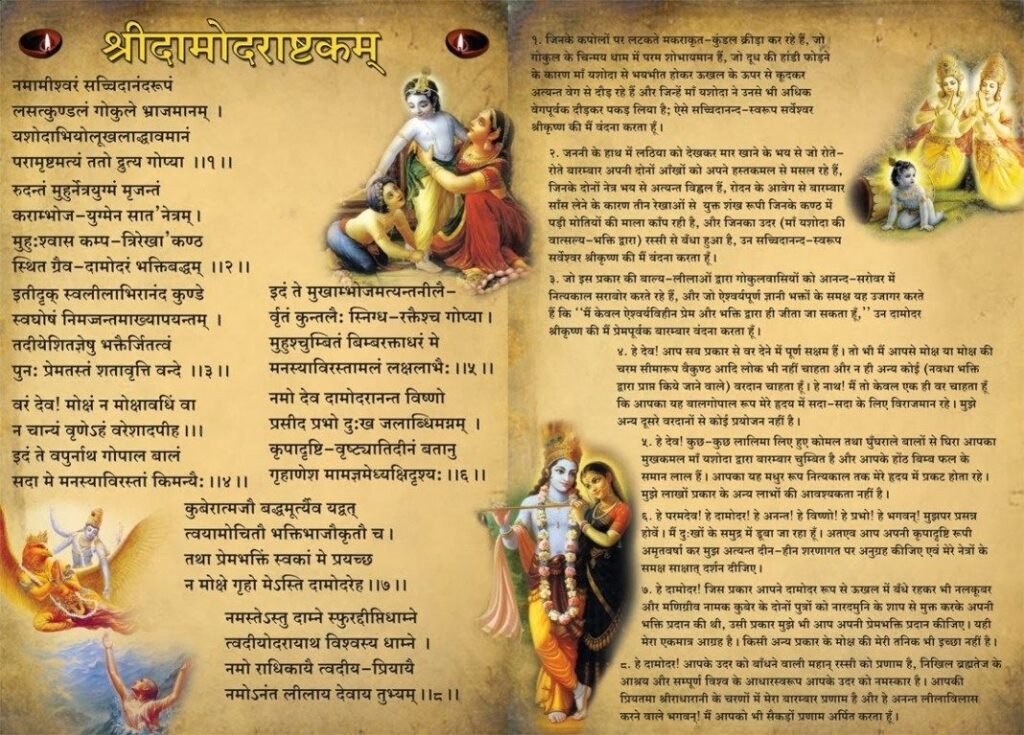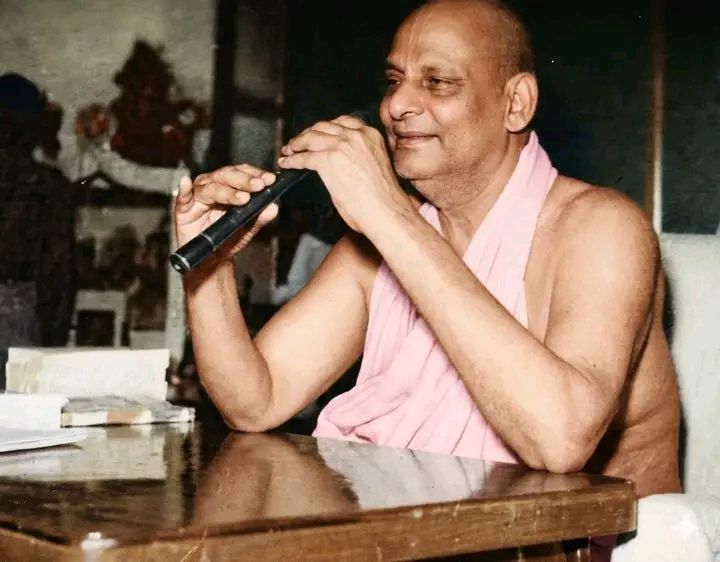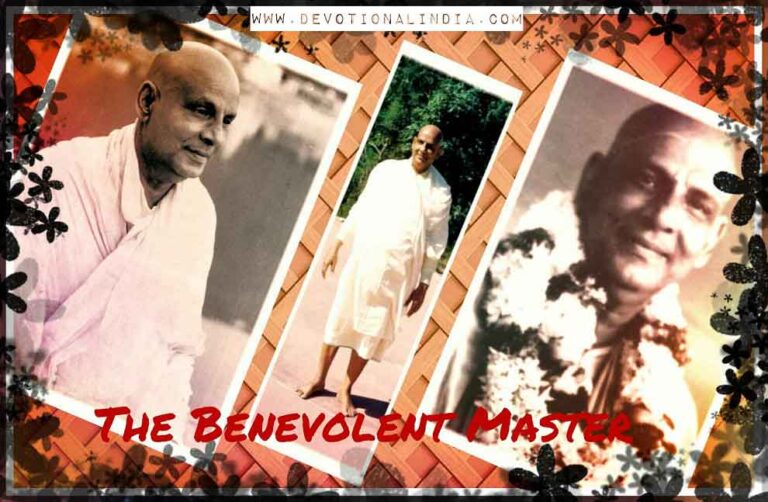Govinda Astakam Stotram
Govinda Astakam

The Govinda Ashtakam is a beautiful and soul-enriching hymn consisting of eight verses (ashtakam) in praise of Lord Govinda, a beloved name of Lord Krishna, who is none other than Lord Vishnu in his most accessible and endearing form. “Govinda” means the protector of cows, but it also has deeper meanings: one who gives pleasure to the senses and the soul, and the knower of all beings.
The Govinda Ashtakam is traditionally attributed to Adi Shankaracharya, the great spiritual master and proponent of Advaita Vedanta. While Shankaracharya is known for his profound philosophical works, his hymns like the Govinda Ashtakam reflect his immense devotional heart, showing that knowledge (jnana) and devotion (bhakti) are not separate but beautifully intertwined.
This hymn glorifies the Lord not just as the Supreme Reality, but also as the playful cowherd of Vrindavan, whose pastimes charm the hearts of devotees. Each verse of the Govinda Ashtakam highlights a unique aspect of Krishna’s divine personality — his beauty, his leelas (divine pastimes), his protection of devotees, and his transcendental nature. The language is poetic and lyrical, filled with imagery that captivates the mind and melts the heart. For instance, the Lord is described with lotus eyes, a smiling face, a crown adorned with peacock feathers, and hands that play the flute — all classical symbols associated with Krishna.
He is the one who lifts the Govardhana Hill, dances with the gopis, and destroys evil with a smile. These depictions are not merely poetic—they are meditations for the devotee to internalize the presence of the Lord in the heart. A unique aspect of the Govinda Ashtakam is its refrain, which reaffirms that “He alone is my Lord, my shelter, my eternal refuge — Govinda!” This repeated invocation reinforces the mood of surrender (śaraṇāgati) and dependence on God as the only permanent anchor in a world of impermanence.
The Govinda Ashtakam also brings out the rasa (emotional flavor) of madhurya bhakti — the sweet and intimate love of Krishna. He is not just worshipped in fear or awe but loved as a friend, child, or beloved. In fact, it is this sweetness and intimacy that draws devotees closer to Govinda more than his majesty or cosmic powers.
Reciting or listening to the Govinda Ashtakam is believed to bring peace, devotion, and a deep inner connection to the Lord. It is often sung during the early morning hours, especially on days sacred to Krishna like Janmashtami, Gopashtami, or Ekadashi. The rhythm, beauty, and emotion of the hymn make it a cherished part of Vaishnava devotional practice.
In conclusion, the Govinda Ashtakam is more than just a hymn — it is a devotional offering, a spiritual meditation, and a pathway to divine love. Through these eight gems of praise, the devotee is gently guided from external worship toward internal realization — discovering that Govinda is not only in temples or scriptures, but eternally present in the heart that loves and surrenders.










































